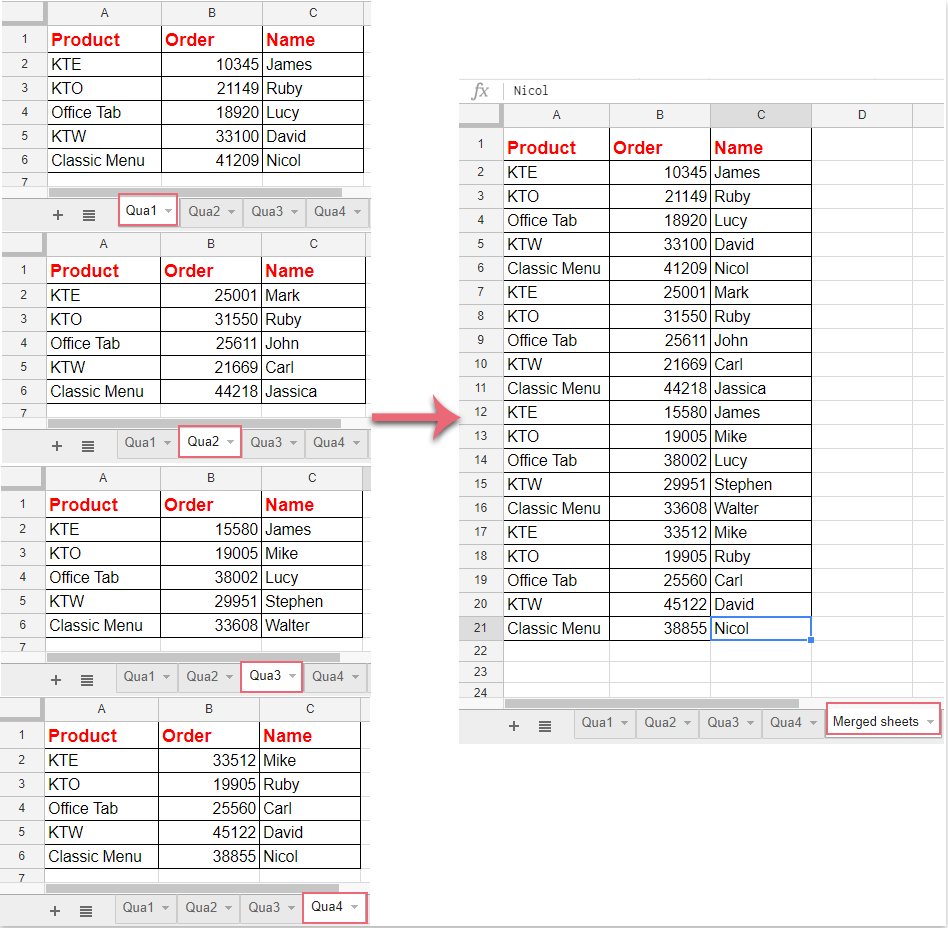Combine Excel Sheets Easily: One Simple Method

Merging data from multiple Excel spreadsheets can be an essential task, whether for consolidating financial records, compiling sales data, or just organizing personal information. Excel offers powerful tools to simplify this process. In this comprehensive guide, we will explore one simple method to combine Excel sheets using the Power Query feature, which can save time and reduce errors in data management.
Understanding Power Query in Excel

Power Query, previously known as Get & Transform, is a data connection technology that enables users to discover, connect, combine, and refine data across a wide variety of sources. Here’s why Power Query is invaluable:
- Automate repetitive data tasks.
- Merge data from different sources.
- Perform complex data transformations.
Steps to Combine Excel Sheets with Power Query

Step 1: Access Power Query
Open Excel and navigate to the Data tab, then click on Get Data or From Other Sources (the exact label might depend on your version of Excel).
Step 2: Select Your Data Source
- Choose File, then Excel, and browse to select your Excel file with multiple sheets.
Step 3: Import Multiple Sheets
Instead of selecting a single sheet:
- Click on the dropdown next to the workbook file name.
- Choose Select Multiple Items.
- Check all the sheets you need to combine.
- Click Load.
Step 4: Merge Queries
Once the sheets are loaded:
- In the Power Query Editor, click on Home.
- Select Append Queries or Merge Queries, depending on your data.
- If using Append Queries, choose Append Queries as New if you want to keep your original sheets separate.
- In Merge Queries, match columns by their headers or keys to join the data.
⚠️ Note: Remember to ensure that the column names match across all sheets if you’re using the Append method.
Step 5: Transform Data
After merging or appending your data, use Power Query to:
- Filter out unnecessary rows or columns.
- Change data types or formats.
- Remove duplicates or perform other cleaning tasks.
Step 6: Load to Excel
Once you’re satisfied with the transformations:
- Click Close & Load.
- Your merged data will now appear as a new tab in your Excel workbook.
Power Query not only combines sheets but also keeps a record of all the transformations, making it possible to refresh data or apply the same transformations to future datasets automatically.
Handling Complex Data Structures

If your sheets have different structures:
- Consider aligning column headers manually before merging.
- Use the Promote Headers feature in Power Query to treat the first row of data as headers if needed.
⚠️ Note: Always verify the integrity of your data after combining, as merging data from different sources can sometimes lead to inconsistencies or errors.
In summary, Excel’s Power Query is a robust tool for combining sheets, offering automation, ease of use, and data integrity checks. Whether you’re a business analyst, accountant, or just need to organize personal data, mastering this tool can significantly enhance your efficiency with Excel spreadsheets.
Can Power Query combine sheets from different workbooks?

+
Yes, Power Query can combine sheets from multiple workbooks. You would need to repeat the process of selecting files for each workbook and then merge or append them within Power Query.
What happens if the columns in my sheets don’t match?

+
If columns don’t match, Power Query will still append or merge based on the common columns. You might need to manually align headers or use the ‘Promote Headers’ feature to ensure consistency.
Is Power Query available in all versions of Excel?

+
Power Query is available in Excel 2016 and later versions, including Office 365. For older versions, you might need to install the Power Query add-in.